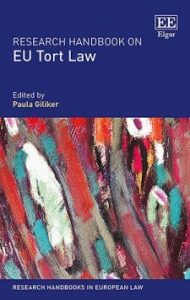By Prof Phil Syrpis (University of Bristol Law School)

Whisper it gently, but a solution to the Brexit riddle seems to be coming into view. Westminster has yet to see it, but it will not be long now (famous last words…) before the reality, finally, becomes impossible to avoid. March 2019 will be upon us very soon. Unless *something* is agreed the UK will leave the EU on 29 March with no deal.
Developments in the EU
While the attention of the nation is focused on Westminster, and in particular on the travails of Prime Minister Theresa May – who on 12 December survived a no confidence from her own MPs by an uncomfortable margin of 200 to 117 – the most important developments have come from the European Union; the ruling of the European Court of Justice on the revocability of Article 50, and the EU’s ever clearer political statements that it will not countenance renegotiation.
First, on Monday, came the judgment of the CJEU in the Wightman case. The CJEU ruled on the unilateral revocability of Article 50. In a judgment which emphasised the sovereignty of the withdrawing Member State, and its ability to decide whether its destiny lies within or outside the EU, the Court held that unilateral revocation is possible ‘in an unconditional and unequivocal manner, by a notice addressed to the European Council in writing, after the Member State concerned has taken the revocation decision in accordance with its constitutional requirements’. It confirmed that ‘the purpose of that revocation is to confirm the EU membership of the Member State concerned under terms that are unchanged as regards its status as a Member State’. For fuller analysis of the judgment, see here, and, with added Taylor Swift, here. (more…)




